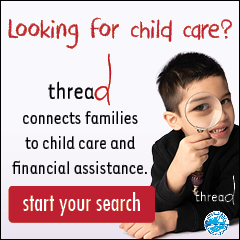What Parents Should Know about Teen Depression and Suicide
By Jan Pierce, M.ED.

The controversial television mini-series 13 Reasons Why, based on the book by Jay Asher, has brought the topic of teen depression and suicide to the forefront. The graphic nature of this show and concerns of health professionals that the issue will be glamorized, has caused many agencies and school districts to issue warnings about the dangers of viewing the show.
However, the issue is real and staring today’s parents in the face. The truth is, teen suicide is on the rise, especially in young girls. The Centers for Disease Control and Prevention reports that suicide is the third leading cause of death in females aged 15-24. Additionally it’s estimated that one in five teens from all walks of life will suffer from depression at some point in their teen years and depression can lead to desperation and a desire to end life.
Teens face many pressures in our fast-paced world. They endure the natural body and hormone changes we all faced as young people, plus questions of identity and finding a place socially, emotionally and psychologically. Teen depression goes further than normal moodiness and can sometimes be hard to diagnose. But teen depression is treatable and young lives can be rescued back to normalcy.
How to Know Teens Need Help
Since most teens go through some times of sadness and ups and downs of emotions, it can be difficult to know when they are really in trouble. Here are some behaviors to watch for which, taken together, can alert parents and other adults to their need for help.
- Troubles at school including poor attendance, lack of focus, and a drop in grades
- Drug and alcohol abuse in an attempt to bury their pain
- Lower self esteem in which teens may feel ashamed, unworthy or unappealing
- Reckless behavior where they engage in high-risk driving, drinking, or unsafe sex Internet addiction as a means of escaping real life and increasing their sense of isolation
- Violent behavior, more common in boys, can be the result of bullying
In other cases extreme behaviors such as cutting (self-injury) or eating disorders may be the result of depression.
In addition to the above behaviors, adults may notice that their teens display some of the following behaviors:
- Sadness or hopelessness
- Irritability, anger, hostility
- Frequent crying
- Withdrawal from friends and activities
- Changes in eating and sleeping habits
- Fatigue and lack of energy
- Unexplained aches and pains
- Thoughts of death or suicide
Again, everyone feels some negative feelings from time to time. The key is to watch for patterns, sudden changes in behavior or a combination of the above problems that become worrisome to family members, teachers and others who know the teen well.
Springtime is the time of year when the highest number of suicide attempts among teens takes place. It coincides with the pressures of final exams, fears related to college entrance or other future plans and, sometimes, the worries related to such events as proms and other social events.
Some warning signs that a teen may be contemplating suicide include:
- Talking or joking about suicide
- Speaking about death or saying they’d be better off dead
- Writing about death, dying or suicide
- Engaging in risky behavior that causes them to be injured
- Giving away prized possessions
- Seeking out weapons or pills
- Saying goodbye to friends and family members

How You Can Help
Parents can play a role in identifying teen depression and become champions of hope and recovery. You know your child best. Here are some ways you can support teens suffering from depression and possibly having thoughts of suicide:
- Focus on listening to the teen, not teaching, reprimanding or lecturing.
- Be persistent in talking with them about the things they’re feeling.
- Accept their feelings and don’t try to change their minds. Acknowledging their pain and sadness can build trust.
- Since you know the teen well, trust your instincts in noticing dangerous behaviors and attitudes and directing the teen toward help via a counselor, teacher or mental health professional.
- Do your best to keep the teen engaged in positive activities such as sports, clubs or volunteer work. Isolation is the enemy of the depressed teen.
- Spend time with the teen. Talking without distractions can play a big role in helping the teen come to grips with problems.
- Depressed teens need adequate nutrition, sleep and clear boundaries related to their social lives. They need a “safety net” in which to live.
Become familiar with available mental health support systems. Below, find help lines and other sources of support for teens who may be suicidal.
- Alaska CARELINE is the state’s suicide prevention and “someone-to-talk-to” line, offering free and confidential help at 1-877-266-HELP (4357). Trained counselors are available at any time – 24/7 – to provide intervention to those who are considering suicide and provide information to those who are concerned about someone else. CARELINE also has a texting service available (Tuesday-Saturday from 3-11 pm) for those who are not comfortable on the phone – simply text 4help to 839863.
- Mental Health Emergency Counseling line: 907-563-3200
- National Suicide Prevention Lifeline: 1-800-273-TALK or text START to 741-741
- The American Foundation for Suicide Prevention: afsp.org










